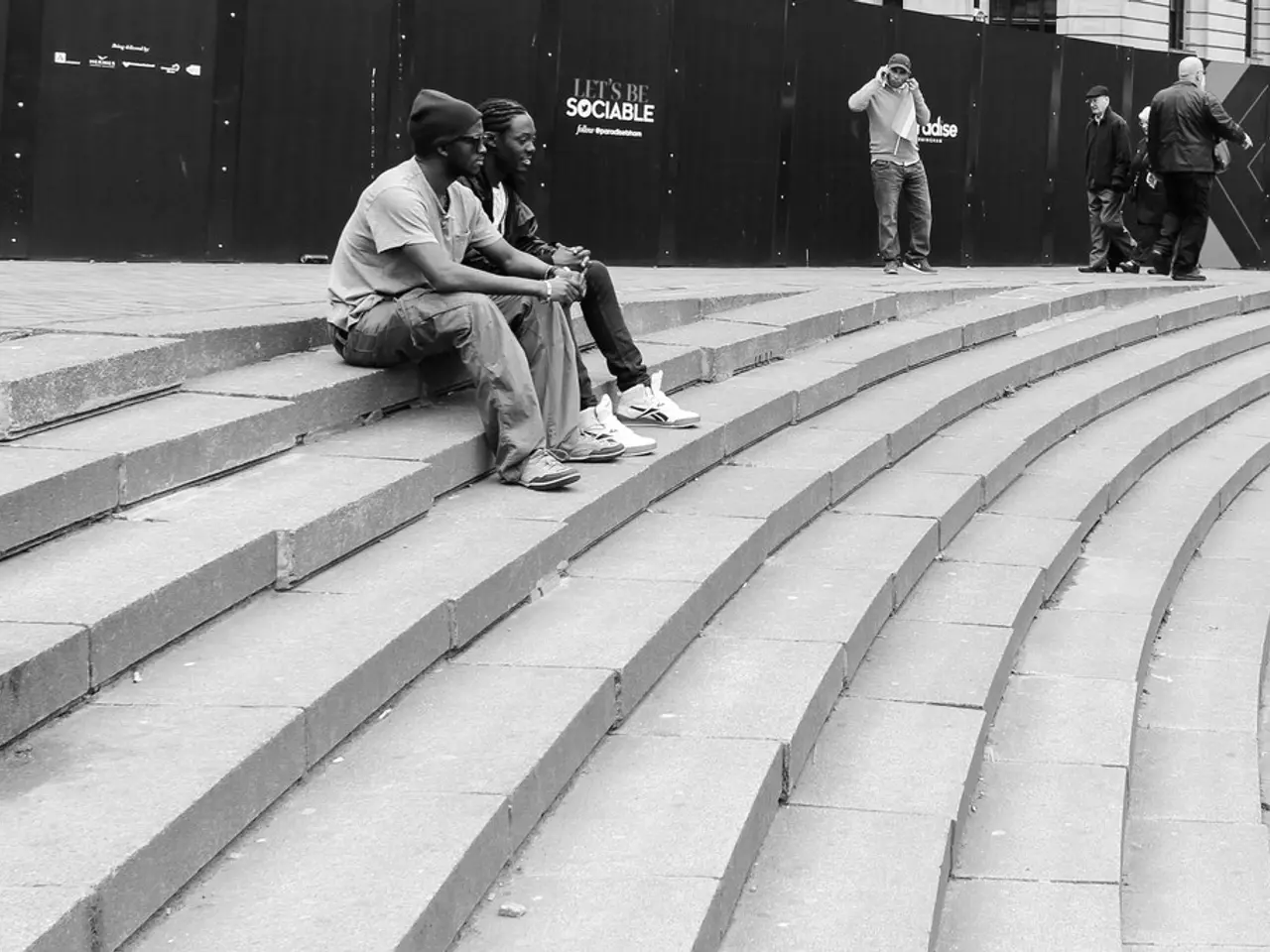Enhanced brain function found for individuals engaging in walking
In a groundbreaking study, researchers at the Del Monte Institute for Neuroscience at the University of Rochester have discovered that some young and healthy individuals improve their performance on cognitive tasks while walking. This intriguing finding, published in the journal Cerebral Cortex, could potentially open up new avenues for understanding and supporting populations where neural flexibility may be compromised.
Led by Edward Freedman, Ph.D., associate professor of Neuroscience at the Del Monte Institute, the study involved 26 healthy participants aged 18 to 30 years old. The participants were asked to use the Mobile Brain/Body Imaging (MoBI) system, which allows neuroscientists to understand the mechanisms at work when the brain takes on multiple tasks.
The task was simple yet challenging: participants were instructed to click a button each time an image changed, and if the same image appeared back-to-back, they were asked not to click. Performance achieved by each participant while sitting was considered their personal behavioral "baseline". Interestingly, when walking was added to performing the same task, some participants performed worse than their sitting baseline, while others showed improvement.
The electroencephalogram, or EEG, data showed that the 14 participants who improved at the task while walking had a change in frontal brain function. This brain activity change suggests increased flexibility or efficiency in the brain. This finding builds upon Freedman's previous work, which demonstrated the flexibility of a healthy brain, with more difficult tasks revealing greater neurophysiological differences between walking and sitting.
Eleni Patelaki, a biomedical engineering Ph.D. student at the University of Rochester School of Medicine and Dentistry, was the first author of the study. Additional authors include John Foxe, Ph.D., and Kevin Mazurek, Ph.D., of the University of Rochester Medical Center.
The study's findings could guide scientists to identify a possible marker for 'super agers' or people who have minimal decline in cognitive functions. This marker could help better understand what could be going awry in neurodegenerative diseases. The research continues to explore how the MoBI system can help neuroscientists understand the complex interplay between physical activity and cognitive function.
The research was supported by the Del Monte Institute for Neuroscience Pilot Program, the University of Rochester CTSA award number KL2 TR001999 from the National Center for Advancing Translational Sciences of the National Institutes of Health, and the National Institutes of Health. Recordings were conducted at the University of Rochester Intellectual and Developmental Disabilities Research Center (UR-IDDRC).
Read also:
- Understanding Hemorrhagic Gastroenteritis: Key Facts
- Stopping Osteoporosis Treatment: Timeline Considerations
- Tobacco industry's suggested changes on a legislative modification are disregarded by health journalists
- Expanded Community Health Involvement by CK Birla Hospitals, Jaipur, Maintained Through Consistent Outreach Programs Across Rajasthan








